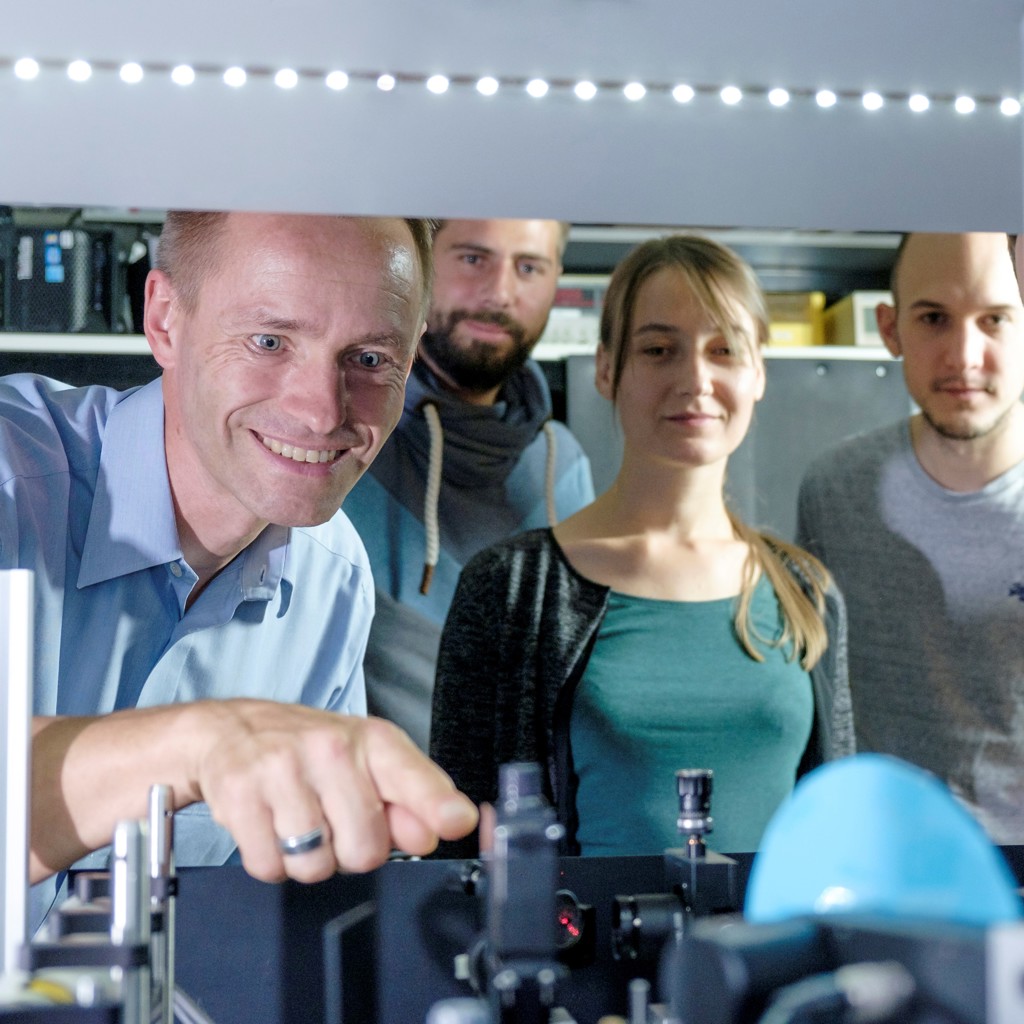Karsten Buse
Fraunhofer Institute for Physical Measurement Techniques IPM and University of Freiburg, GermanyFor seminal work on the optical properties and device applications of lithium niobate.

Karsten Buse advises young researchers to “keep their minds open to the unexpected.” When he started in research 25 years ago, photorefractive crystals and effects were an extremely timely topic. Most of the research at that time was done with lithium niobate. However, as the world transitioned to digital, the relevance of this field declined. With his group, he had to take a different research path. Anyone who has ever tried to change career paths knows this is not an easy task. His group decided to “focus on nonlinear optics, but to still employ mostly the material [they are] very familiar with, lithium niobate.” This turned out to be a good decision as lithium niobate has emerged as a key platform technology for advanced integrated photonics.
Karsten says that the future of his field is in using “integrated nonlinear photonics for the generation of frequency combs, for tunable laser light sources and for getting entangled photons.” He says these concepts will become reality with many applications, particularly in spectroscopy and analytics, which could eventually enter the consumer market. Integrated photonics solutions, in modern technological devices such as smartphones, for example, “can provide warning against harmful gases (CO/fire), can measure the nutrition facts of food, can provide breath gas analysis for health monitoring, and many more things.”
Karsten’s research started out recording and optimizing volume holographic filters. He says that it was “a lot of fun to move this field forward” and, in particular, to found the company Ondax, Inc. with OSA Fellows Demetri Psaltis and Christophe Moser and their students. Ondax, Inc., based in Monrovia, California, USA was acquired by the Coherent, Inc. and offers today several narrow-band filters to stabilize lasers and to pick Raman light. In addition to being fun, Karsten says that is also “mentally stimulating to realize real-world innovations stemming from scientific accomplishments.”
Outside of work, Karsten spends time bicycling and swimming with his family. He combines his work with his hobbies by saying, “Nature is fascinating. To understand nature – at least partially – and to have tools in our hands to describe nature is a big cultural asset. My interest is to apply this knowledge to generate technical innovations for a safe, peaceful, sustainable, and worth living world. Technical innovations are the key to make this possible.”
